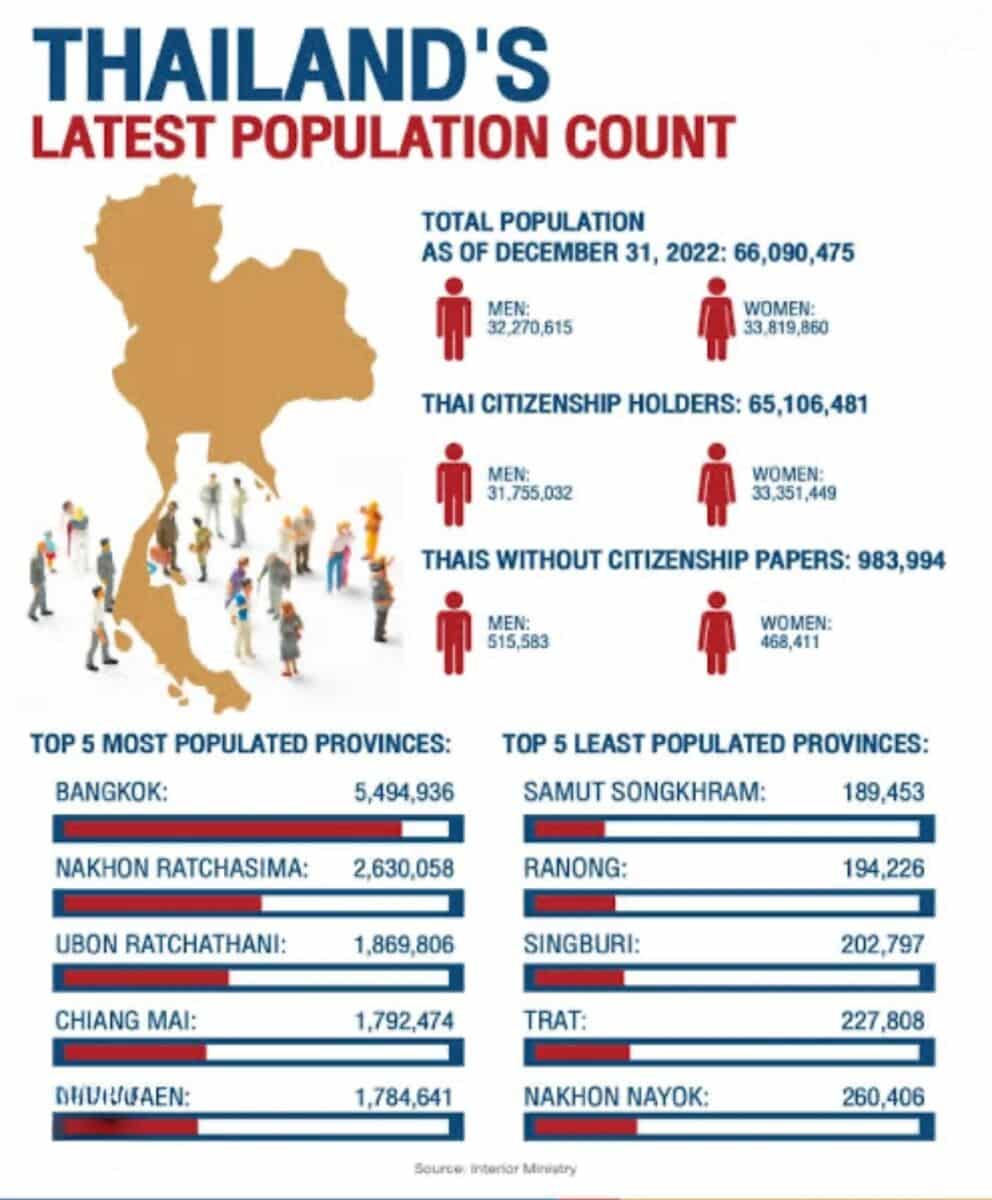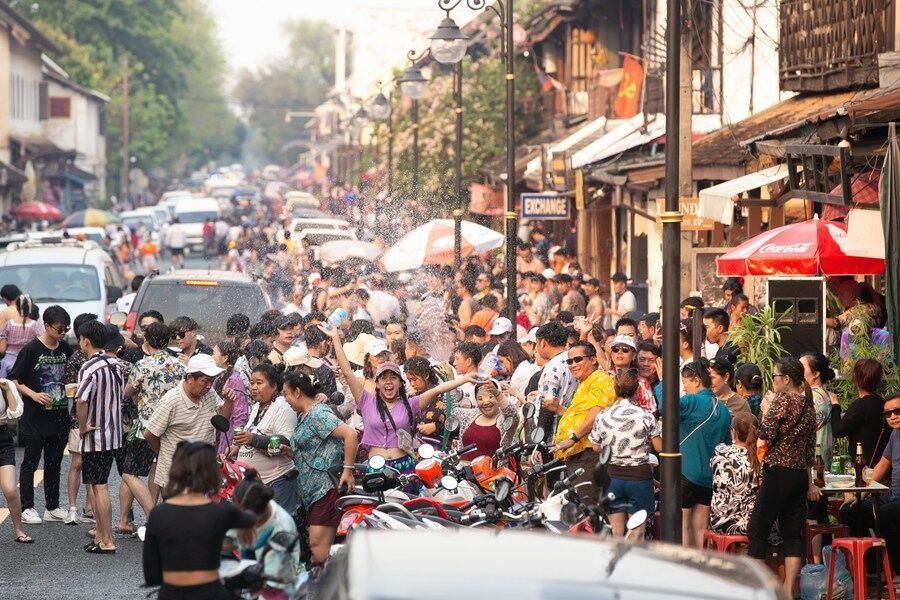Census kicks off as Thailand tackles falling births, ageing locals, migrants

Thailand has launched its first national census in over a decade in a bold bid to tackle a wave of pressing population problems: from declining birth rates and labour shortages to an ageing society and rising migration.
The census, which began on April 1 and runs until June 19, aims to collect fresh demographic data to help the government craft future policies on everything from welfare and education to housing and job creation.
Phutchaphong Notthaisong, director of the National Statistical Office (NSO), said the updated national headcount was “crucial for understanding major shifts” in Thai society.
“This census is essential. Our last comprehensive census was 15 years ago. So much has changed since then, we need accurate data to plan for the future.”
The NSO hopes the survey will shine a spotlight on everything from migration patterns and living conditions to employment trends and family size, particularly as Thailand grapples with a shrinking workforce and ballooning elderly population.
In a major step forward, the 2024 census is going digital, with the NSO predicting that up to 50% of respondents will complete the survey online. That’s a significant leap from the mere 14% who did so in the last census.

Text messages are being sent to millions of Thai citizens, encouraging them to log on and take part via the NSO website or the government’s Thang Rath app, Bangkok Post reported.
To sweeten the deal, the NSO is even dangling prizes, including smartphones and gadgets, for those who complete the census online between April 1 and 20.
But for those in more remote areas or without Internet access, the traditional door-to-door method still applies. More than 40,000 Thailand Post workers will hit the streets between April 21 and June 19 to conduct face-to-face interviews.
A hefty 400 million baht has been earmarked for the operation, with data being gathered from around 4 million households across 11 provinces, including Bangkok, Chon Buri, Chiang Mai, Phuket and Roi Et.
The questionnaire covers 12 key topics: including household size, education level, employment status and living conditions. In a progressive move, there’s also a new section dedicated to LGBTQ+ demographics, a first for the Thai census.
“It’s a step in the right direction for visibility and inclusivity,” one campaigner said. “LGBTQ+ Thais have always existed, now the data will reflect that too.”

Once collection ends in June, the data will be processed using artificial intelligence (AI) and Big Data technology to ensure precision and depth.
The final report is expected to land between October and December, and officials say it will provide a “detailed snapshot” of Thailand in 2025, the good, the bad, and the surprising, said Phutchaphong.
“This isn’t just a numbers game. It’s about understanding the people behind the statistics, so we can serve them better.”
And with Thailand’s birthrate at an all-time low, a grey wave of retirees on the horizon, and an increasingly international population in cities and tourist hubs, the information could hardly come at a more critical time.
Whether it’s planning new schools, adjusting pensions, or reforming immigration laws, the census data will be the government’s guiding compass for the next decade.
In the words of one Bangkok resident: “It’s about time. The country’s changed. It’s only right the data reflects that.”
So if you get that text message reminder this month, don’t ignore it, your click could help shape Thailand’s future. And hey, you might just win a free phone while you’re at it.
Latest Thailand News
Follow The Thaiger on Google News:


























